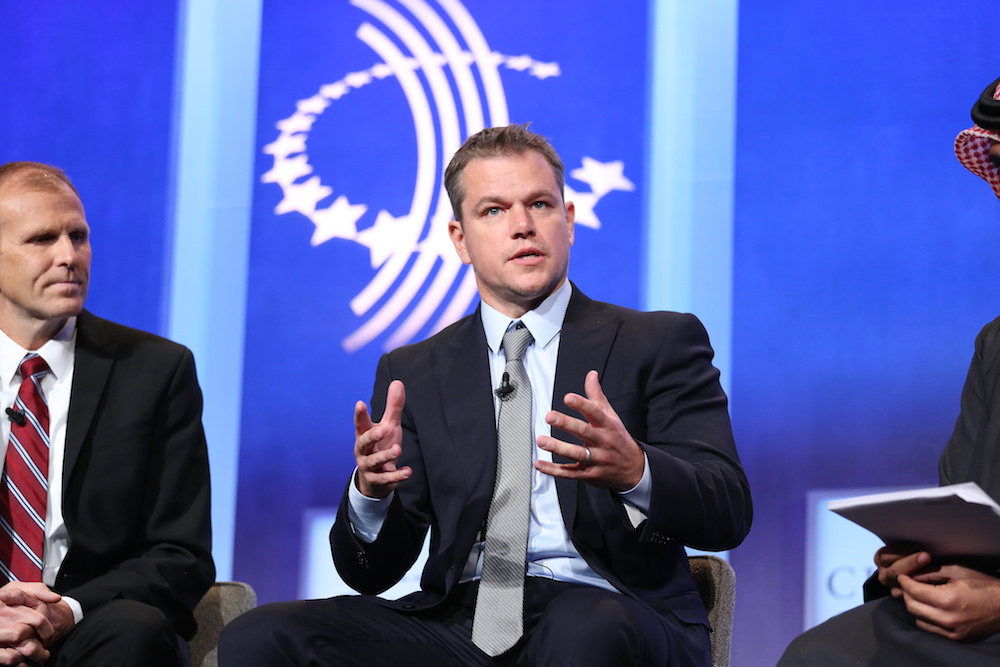Matt Damon: To Solve World Poverty, You Need Clean Water

NEW YORK — The developing world has a water problem, and Matt Damon wants to solve it.
The actor and philanthropist co-founded Water.org, a nonprofit organization that works to provide clean water and access to sanitation to hundreds of communities in Africa, South Asia and Central America.
Damon and his co-founder, CEO Gary White, talked about their nonprofit's progress here Tuesday (Sept. 23) at the annual meeting of the Clinton Global Initiative, an effort founded by former U.S. President Bill Clinton to engage global leaders in solving pressing world problems. [Earth in the Balance: 7 Crucial Tipping Points]
"You cannot solve poverty without solving water and sanitation," Damon said during the Tuesday afternoon session, taking the stage prior to President Barack Obama's address.
Beneath Damon's easy movie-star charm, his commitment to the cause was evident.
He told the audience that every 20 seconds, a child under the age of five dies from a preventable waterborne disease. Water, sanitation and hygiene problems kill more than 3.4 million people each year, and 99 percent of these cases occur in the developing world, according to Water.org.
"More people have access to a cellphone than to a clean glass of water," said Mohammad Parham Al Awadhi of the United Arab Emirates, co-founder of the travel TV show "Peeta Planet," which is broadcast throughout the Middle East. Awadhi moderated the session with his brother and co-star, Peyman Parham Al Awadhi.
Get the world’s most fascinating discoveries delivered straight to your inbox.
In addition, people in much of the developing world lack access to a toilet, forcing them to defecate in the open. Such practices pose a threat not only to public health, but also to the safety of women and girls, since social norms often require females to wait until nightfall to relieve themselves, White said. In May, two teenage girls in India were gang-raped and murdered when they went out to find a place to use the restroom, White said.
To boost the organization's efforts to provide clean water and toilets to communities in need, Water.org launched a microfinancing program called WaterCredit, which makes small loans to individuals and households so they can develop basic hygiene facilities. About 90 percent of the borrowers are women, and 99 percent of the loans have been repaid, White said.
It costs about $25 to supply one person with clean water for life, Damon said, and Water.org is working to drive that cost down.
Damon encouraged the audience to not only donate to the cause, but also become informed about the problem. "We don't just need money. We need brain power," he said.
Follow Tanya Lewis on Twitter and Google+. Follow us @livescience, Facebook & Google+. Original article on Live Science.

 Live Science Plus
Live Science Plus





